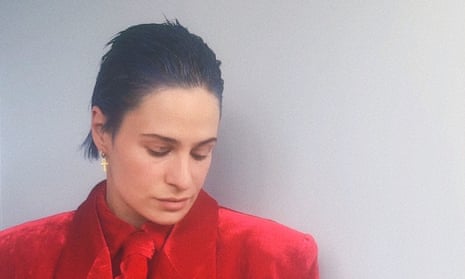Rahim Redcar vs. Lorde: A Call for Artistic Integrity
Rahim Redcar accuses Lorde of artistic mimicry, sparking a debate on creative inspiration versus appropriation in pop culture.


In a jarring revelation that has sent ripples through the music industry, Rahim Redcar, formerly known as Christine & The Queens, accuses pop star Lorde of artistic mimicry without homage. This claim illuminates an ongoing debate about the boundaries of creative inspiration versus appropriation—a discussion as old as art itself but increasingly pertinent in today's pop culture tapestry.
The Depths of Creative Wells

Rahim Redcar is a pioneer at the confluence of pop and avant-garde, crafting music that transcends the predictable confines of mainstream appeal. His works, rich in innovation and emotional depth, breathe life into the corners of pop that often go unnoticed by the broader public. His voice, a clarion call amid the cacophony of commercial hits, is now taking a stand against what he perceives as undue appropriation by a more visible and celebrated artist.
For Lorde, whose career has flourished on the intricate balance of simplicity and introspection, the accusations pose not just a challenge to her artistic integrity but also to the perceptions of her audience. Is her sound genuinely hers, or is it, as Rahim suggests, a reimagined echo of lesser-heard voices?
The Ethical Quandary of Influence

This situation invites reflection on the ethics of artistic influence, especially concerning established artists drawing inspiration from emerging or underground voices. When is influence a nod of respect, and when does it transform into something more parasitic—an uncredited borrowing of someone else's trials, triumphs, and textures?
Rahim's accusation is more than a personal lament; it’s a punctuating moment that brings to light how often the mainstream feeds off the avant-garde without acknowledgment, creating a cycle where the originators are sidelined in favor of sanitized versions more palatable to mass audiences.
Redressing the Balance
As this narrative unfolds, it serves as a reminder of the industry's responsibility to recognize and celebrate the true architects of innovation. It also underscores the importance of transparency and respect in acknowledging artistic influences. In the echo chamber of popular music, where every beat and lyric is dissected, the call for genuine acknowledgment of inspiration becomes a moral imperative.
Rahim Redcar’s candid statements draw a line in the sand, challenging all in the industry to reflect on the sources of their creativity and to ensure that, in the race for relevance, they do not trample upon the original voices that paved the way. Let this be an opportunity for introspection, urging the music community to honor the silent architects who construct the platforms upon which today's stars stand.




